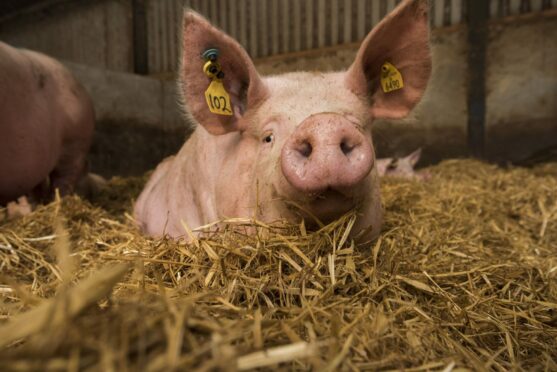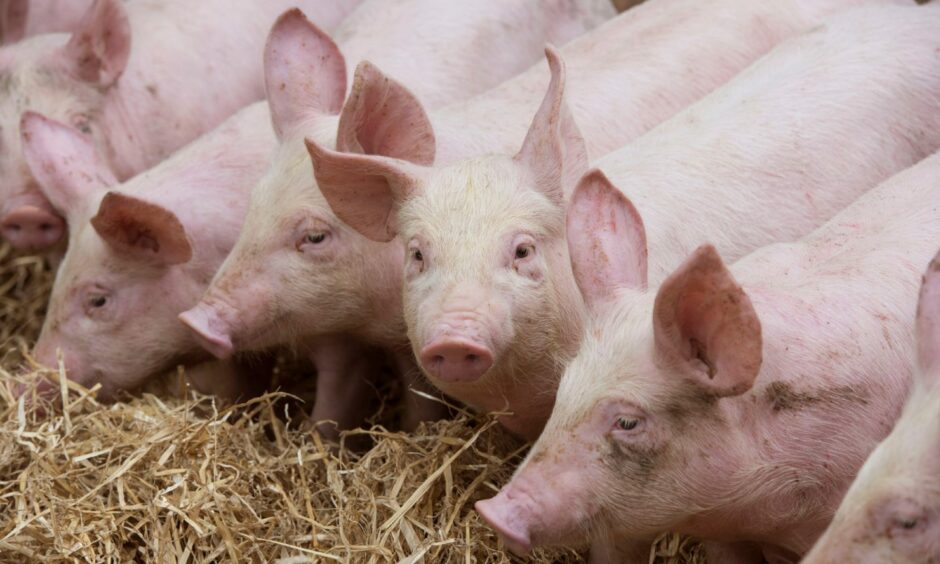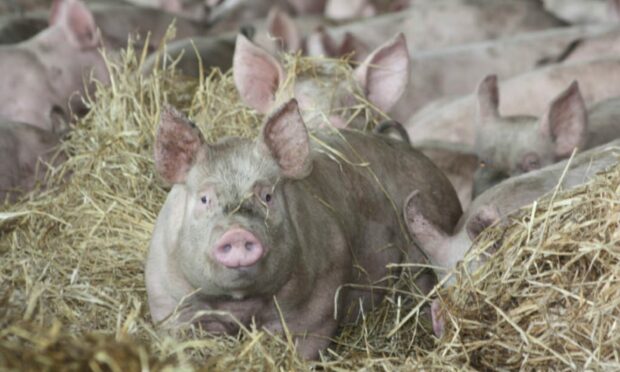Of all the industries within Scottish agriculture, pig farming is probably best known for efficiency of production.
Lack of subsidies and fluctuating markets have forced pig producers to use science and technology to improve efficiency and productivity in order to remain profitable.
Despite this, and through no fault of its own, the industry is currently going through a very difficult period in Scotland and Andy McGowan, managing director of Scottish Pig Producers (SPP) said members were facing a backlog of pigs like they had never seen before.
“Although in the short term, abattoir throughputs are still challenging, there is light at the end of the tunnel with the processing plant at Brechin being bought over and at last offering some long-term security,” said Mr McGowan.
He said another issue which needs addressed in the industry is its carbon footprint and how it is calculated and assessed.
At the moment there are many models for measuring and evaluating this, but a new project – which started in December and will be finished by the end of March – should solve this particular problem.
Mr McGowan is heading up the scheme, which aims to further improve efficiency and save time for farmers, processors and retailers alike.
Carbon Trotterprints aims to streamline the carbon auditing system for producers and has attracted a £35,100 grant from the Scottish Government’s Knowledge Transfer and Innovation Fund (KTIF) with additional funding from red meat levy body Quality Meat Scotland (QMS).
Facilitated by Wholesome Pigs (Scotland) – the not-for-profit, health and welfare arm of SPP – the aim of the project is to build on the success of benchmarking within the Scottish pig industry to deliver improved measurement tools which will minimise the work involved on farm to complete carbon footprints.
“Currently every retailer and processor uses a slightly different form of carbon footprinting tool, which is an onerous task for farmers to complete once, never mind several times,” said Mr McGowan.
“When this project is complete, we will have a database where we can collect all the information once in a format which is transferable to all footprinting models.”
Data is being collected from 15 different farms throughout Scotland – mostly SPP producers but also some from Scotlean, Karro and from a smallholding – so there is a good cross-section of scale, system and geography.
At the same time work is ongoing to structure a database, and once this is complete, the data will be inputted and run through three different carbon footprint tools to ensure results are satisfactory to the end user. The programme will then be rolled out to all Scottish pig producers.
Mr McGowan said: “One of the most important items in a carbon footprint is the source of raw materials for feed, so we are working with feed companies to get that information and relieve the pressure on farmers.
“The aim is that once we have all the information from feed suppliers and farmers, one person can easily enter the data in the footprinting tool.”
He added: “From SSP’s point of view it will help by making marketing easier as we can sell pigs on to different outlets without the farmer having to complete a separate carbon footprint for each one.
“The Scottish government was keen to support us with this project because it can see the potential for the system to be rolled out to other methods of production such as dairy or cereals.”
The latest round of KTIF funding totalling just over £170,000 has gone to projects with a specific focus on resource efficiency, cutting emissions, environmental performance and sustainability of agricultural holdings.
Rural Affairs Secretary Mairi Gougeon said: “It is clear that we all need to work together to reach our climate goals.
“That’s why investing and supporting knowledge transfer and innovation within our agricultural sector has never been more important.”



